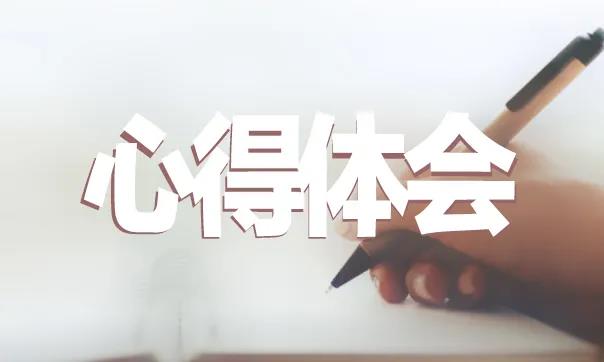年级单元英语知识点第1篇HesaidIwas重点语法:宾语从句结构:主语+谓语动词+宾语从句(主语+谓语动词+宾语/表语)例句:----ImgoodatHe(改为加宾语从句的复合句)----Hesay下面是小编为大家整理的年级单元英语知识点汇编18篇,供大家参考。

年级单元英语知识点 第1篇
He said I was
重点语法:宾语从句
结构:主语 + 谓语动词 + 宾语从句(主语 + 谓语动词 + 宾语/表语)
例句:----Im good at He (改为加宾语从句的复合句)
----He says Im good at
注意:①主句是一般现在时态,宾语从句的时态不受其影响。
例句:He says Im good at English
He says I was good at mathematics when I was
②主句是过去时态,宾语从句也要用过去时态。
例句:He said I was good at mathematics when I was young
He said I was good at English now
③宾语从句是客观真理时永远用一般现在时态。
例句:Our teacher says 24 hours make a
Our teacher said the sun gives us so many energy
④动词原形不能作主语,必须用其 -ing 形式。
例句:She said helping others changed her
重点短语:direct speech 直接引语
reported speech = indirect speech 间接引语
first of all = at first 首先
pass on 传递
be supposed to do 应该做某事
be good at = do well in 在某方面做得好
年级单元英语知识点 第2篇
Section B 知识提纲
一、词型转换
mean 意思是 → meant → meaning 意思
meaning → meaningful 有意义的→ meaningless 毫无意义的
表演,扮演→ action 行动,actor 男演员actress女演员
→ became 富有的→ poor 贫穷的
成功→ success 成功→获得成功的
运气→ lucky 幸运的→ unlucky 不幸的,不吉利的
→ luckily 幸运地→ unluckily 不幸地
lose 失去,丢失→ lost
二、短语
movie动作影片
be ready to 准备好(做某事),愿意(做某事)
up 装扮,乔装打扮
take one’s place 代替,替换
do a good job 干得好
out 出版,发行
try one’s best 尽最大努力
三、词法
well known 著名的,出名的
? be famous for 因……而著名
? be famousas 作为……而著名
Lang Lang is famous for playingthe piano . 郎朗因弹钢琴出名。
Lu Xun is famous as a writer . 鲁迅作为一名作家而著名。
succeed 成功 ? success successful successfully
? succeed in doing 成功地做某事
At last he succeeded in solvingthe problem .
最后他成功地解决了这个问题。
reason 原因,理由reasonfor / doing 某事/做某事的原因
Give me the reason for helpinghim . 给我你帮他的原因。
ready for sth 为……做好准备
be ready to do sth . 准备好做某事/ 愿意做某事
lose 失去,丢失 ? lost 丢失的getlost= lose one’s way 迷路
尝试,设法tryto do sth .设法做某事try doing sth .尝试做某事
try one’s best 尽某人最大努力tryon 试穿havea try 试一试
四、语法——动词不定式作宾语
? 动词不定式的肯定式为:to+ 动词原形
? 动词不定式的否定式为:notto + 动词原形
? 一些动词(短语)后常跟动词不定式作宾语,常见的这类动词是
表示打算或希望的。如:wouldlike , want , wish , hope , decide ,
plan , expect 等。I planned to goshopping last night .
年级单元英语知识点 第3篇
副词:用来说明时间、地点、程度、方式等概念,主要修饰动词、形容词、其它副词
或整个句子。
( 一).副词的分类:
1.时间副词:now , then , today ,tomorrow , yesterday , before , ago , soon ,
Immediately , lately , early ,sometimes , often , always , usually , already ,
Yet , ever ,never , seldom 。时间副词是确定句子时态的重要标志,需牢记。
2.地点副词:outside , inside , upstairs, here , there , home , near , away ,
In , back , off , up , anywhere 。
3.方式副词:quickly , happily , loudly , suddenly , luckily , badly , easily ,
fast , again 。方式副词大多由“形容词 +y ”构成。
4.程度副词:very , quite , rather , too , much , so .
5. 疑问副词:when , where , why , how long , how soon , how often ,
How far . 疑问副词常用来构成特殊疑问句。
6.关系副词:when , where , why , how 等。关系副词常用来引导从句。
(一)副词的用法:
1.作状语,用来修饰动词、形容词、其它副词或整个句子。
Please listen to me carefully . The boy is too young .
Luckily , he was not badly hurt .
作表语,表示方位上的变化:
My father will be back in a week .
作宾语补足语。 Let him in , please .
(三) 副词的位置:
1.一般副词作状语时,放在谓语动词之后,如果谓语动词之后带有宾语,则放在宾语后。
We all study hard . He is drawing a horse carefully .
频度副词作状语时放在be动词、助动词、情态动词之后,行为动词之前。
He is always late for school .
I often go to see my grandparents on Sunday .
某些副词为了强调上下句的衔接,放在句子之前。
Suddenly he had a good idea .
enough 修饰形容词或副词时,要放在形容词或副词的后面。
The boy is old enough to go to school .
He got up early enough to catch the train .
(四) 副词比较级、最高级的用法:
1.副词比较级、最高级的构成方法和形容词比较级、最高级的构成方法基本相同。
2.表示“A不如B”时,使用:A + 助动词+ not + 动词原形 + as \ so + 副词原形+ as+ B .
还可使用:A + 动词+ less +副词原形 + than + B
Bill didn’t do his homework as carefully as Jim .
==Bill did his homework less carefully than Jim .
副词最高级前一般不加定冠词the 。
Lin Tao did best in English of all .
(五)易混词辨析:
hard , hardly
hard意为“努力地,辛苦地,剧烈地,猛烈地”,是程度副词。
hardly意为“几乎不”,是否定副词。
As students , we should study hard .
I can hardly catch up with you , can you walk slowly ?
too , also , either
too一般用于肯定句,常放在句尾;
also常放在be动词或助动词之后,行为动词
之前;
either用于否定句,常放在句尾。
You are a student . I am a student ,
They are also students . I don’t like the film , either .
too , enough , so
too 表示 “太,很”, too …to … 表示“太。而不能、、、、、、”
enough表示“足够”, “形容词 / 副词+ enough to…”表示“足够、、、、、、能、、、、、、”。
so表示“如此”, “so … that …”表示“ 如此、、、、、、以致、、、、、、”
The man is too old to look after himself .
The boy runs fast enough to win the game .
The camera is so expensive that I can’t afford it .
already , yet
already用于肯定句,yet用于否定句和疑问句末尾。
I have already finished my homework .
== I have finished my homework
Have you finished your homework yet ?
I haven’t had lunch yet .
年级单元英语知识点 第4篇
Unit 10 The world around us
fur与leather
fur指皮毛,尤指带毛的皮革制品,leather指皮革制品。
endanger 威胁
die of与die from
都译为“死于…”,当“死于疾病”时可以互换,但die of更强调由于年龄,寒冷,饥饿,情感等死亡,die from强调由于环境,伤害,事故等死亡。
如:
The old lady died of old
Careless drivers often die from traffic
lead 领导
leader与leadership
leader指领导人,领袖或带头的人,而leadership指领导,领导权等。
年级单元英语知识点 第5篇
形容词
一、形容词
(一)形容词的含义:表示人或事物的特征、性质、状态的词叫形容词。
(二)形容词的用法及位置:
1.作定语,放在名词之前,不定代词之后。
The nice girl is my sister .
I have something important to tell you .
少数形容只能作表语不能作定语:alone , afraid , ill , asleep ,awake , alive , well 。
作表语,放在系动词之后。 He looks happy .
作宾语补足语,放在宾语之后,常与make , leave ,keep 等动词连用。
You must keep your eyes closed .
Don’t make your hands dirty .
某些形容词放在定冠词the之后,表示一类人。常见的词有:good , bad ,rich , poor ,
young , old , deaf , blind, black , white , living , dead 。
The young should be polite to the old .
Please don’t laugh at the poor .
某些表示情感的表语形容词后可接动词不定式(to + 动词原形):
glad , happy ,pleased
be sorry , sad ,sure , kind + to do sth .
ready , afraid ,able
easy , difficult
(三) 形容词比较级和最高级的构成:
1.规则变化
(1)一般情况,直接在词尾加er \ est 。
(2) 以不发音的字母e结尾时, 加 r \ st 。
(3)以“辅音字母 +y ”结尾时, 把y变为 i ,再加er \ est 。
( 4) 部分形容词,先双写最后一个辅音字母,再加er \ est 。
big , hot, fat , thin , red ,
(5) 部分形容词, 在前面加 more \ most 。
beautiful , careful , important , delicious , difficult , dangerous
(6) 以ly结尾的形容词,在前面加more \ most 。
friendly(友好的) , lonely(孤独的) , lovely(可爱的)
Likely(有希望的) , daily (日常的), lively (有生气的)
不规则变化
good \ well --- better---best many \ much ---more--- most
bad \ ill --- worse ---worst little --- less--- least
far ---farther (较远的) \ further (进一步的) ---farthest (最远的) \ furthest (最大程度的)
old ---older(年纪较大的) \ elder(年纪最大的)---oldest(较年长的)\ eldest (最年长的)
(四) 形容词原级的用法:
1.说明人或事物自身的性质、特征或状态时用形容词原形。
The flowers in the garden are beautiful .
有表示程度的副词very , so , too,enough , quite 等修饰时,用形容词原形。
The boy is too young .
表示A与B在某方面程度相同或不同时,用形容词原形。
肯定句:A + 动词 + as + 形容词原形 + as + B 。
English is as interesting as Chinese .
Xiao Ming is as tall as Jim .
否定句:A + 动词 + not as \ so+ 形容词原形 + as + B 。
This book is not as \ so new as that one .
I am not so careful as Lucy .
否定句的结构相当于 A + 动词 + less + 形容词原形 + than + B 。
He thinks Chinese is less interesting than English .
表示“A 是B 的几倍”:
A +动词+ 倍数+ as + 形容词原形 + as + B 。
Our school is three times as big as theirs .
This table is twice as long as that one .
5.“A + 动词 +Half + as + 形容词原形 +as + B”表示“A是B的一半”
Her room is half as big as yours .
(五)、形容词比较级的用法:
1.表示两者进行比较时,用形容词比较级:A + 动词+ 形容词比较级 + than + B
Lily’s room is bigger than mine .
This mooncake is nice than that one .
2. 有表示程度的副词a little , a bit , a few , a lot , much , even , still ,
Far , rather , any 等修饰时,用形容词比较级。
I feel even worse now . It is much colder today than before .
表示两者之间“哪一个更、、、”:which \ who is +形容词比较级, A or B ?
Who is taller , L i Ming or Wang Tao ?
Which sweater is more beautiful , the yellow one or the pink one ?
表示“几倍于、、、、、、”时, 用“A + 动词 + 倍数+比较级 + than + B ”
I am three years older than you .
5.表示“两者之间较、、、、、、的一个”,常用 “the +比较级”结构 。
Mary is the taller of the twins .
表示“越来越、、、、、、”时,用比较级重叠结构,即“比较级 +and + 比较级 ”,多音节
词和部分双音节词用“more and more +形容词原形 ”
It’s getting warmer and warmer in spring .
Our hometown is becoming more and more beautiful .
表示“越、、、、、、就越、、、、、、”时,用“the +比较级 , the +比较级 ”
The harder he works , the richer he is .
The more we get together , the happier we’ll be .
(六)、形容词最高级的用法:
1.三者或三者以上的人或物进行比较时,用形容词最高级。形容词最高级前必须加定冠词
the , 句末常跟一个in \ of 短语来表示范围。
He is the strongest of the three boys .
Shanghai is the biggest city in china .
表示“三者或三者以上的人或物,哪一个最、、、、、、?”用句型:
Which \ who is + the + 最高级 , A , B , or C ?
Which city is the most beautiful , Beijing , Shanghai or Fuzhou ?
表示“最、、、、、、的、、、、、、之一” 时,用句型:
主语 + is + one of the +形容词最高级 +名词复数 。
Zhou Jielun is one of the most popular singers .
形容词最高级前面可加序数词,表示“第几大 / 长 / 高 等”
Changjiang River is the first longest river in China .
形容词最高级前面可以有物主代词、指示代词、名词所有格等修饰,此时不用the 。
This is our last lesson . Yesterday was his busiest day .
形容词比较级结构可以表示最高级含义。
Li Lei is the tallest student in his class .
== Li Lei is taller than any other student in his class .
== Li Lei is taller than the other students in his class .
== Li Lei is taller than anyone else in his class .
==No one is as tall as Li Lei in his class .
==No one is taller than Li Lei in his class .
== Li Lei is taller than any of the other students in his class .
== Li Lei is taller than the rest of students in his class .
(七)、--ing 形容词与--ed 形容词:
--ing 形容词表示“令人、、、、、、的”, 表示主动意义,多指事物对人的影响,一般修饰或说明事物。如:surprising(令人惊讶的) , exciting (令人兴奋的), interesting(有趣的) 等。--ed 形容词表示“感到、、、、、、的”,表示被动意义,多指人对事物的感受,主语一般是人:
+ be +--ed 形容词 + 介词短语 。
如:surprised(感到惊讶的) , excited(感到兴奋的) ,
Interested(感到有趣的) 等。
We are all excited about the exciting news .
(八)在同一范围内比较时,必须把主体排除在被比较的范围之外。
China is larger than any other country in Asia .( 在同一范围内)
China is larger than any country in Africa . (在不同范围内)
年级单元英语知识点 第6篇
人称 主格 宾格 形容词 名词性
第一人称 单数 I me my mine myself
复数 we us our ours ourselves
第二人称 单数 you you your yours yourself
复数 you you your yours yourselves
第三人称 单数 she her her hers herself
he him his his himself
it it its its this that itself
复数 they them their theirs these those themselves
一般现在时:
通常用 "usually, often, every day, sometimes"。
肯定句:
I go to school on foot every
She goes to school on foot every
一般疑问句:
Do you jump high? Yes, I / No, I don"
Does he jump high? Yes, he / No, he doesn"
否定句:
We don"t go to school on
My mother doesn"t like watching TV in the
年级单元英语知识点 第7篇
正在学习英语的同学最关心的问题无非就是快速学好的问题。怎样才能快速学好英语呢,找准方法坚持下去一定可以学习好的。下面是小编为你指导五大方法。
学习英语的首要理念:要努力去了解“是什么”,而尽量少去了解“为什么”。
因为英语是语言,是人们在长期生活中逐渐形成的一种交流的媒介。很多语汇和句型的用法没有道理可讲,没有“为什么”可言,人们就是这样用的,就是这样说的,记住就好。当然了,仔细分析起来或许可以找到语法上的解释,但实在不是学习英语的宗旨。婴儿时期,我们学说话的时候,从来没有问过“为什么会这么说”吧,但是为什么后来会说的这么好?因为我们听的多,说的多,自然就记在脑子里了,即使不去分析这样说的原因和道理,一样可以说的很好。
学习英语的最好方法:背诵课文。
因为英语是我们的后天语言,所以必须将人家现成的东西反复在脑海里形成神经反射,不用关心为什么这样说(同第一点)。
成功英语老师推荐《新概念英语3,4册》。可以说,几乎没有任何一种教材的经典程度超过《新概念英语》。它的语法是最规范的,结构是最严谨的,流传了好几代人,依然保持最为持久的生命力。
套用中医里的理论“扶正才能驱邪”。为什么在考试做选择题的时候往往我们会在几个答案中犹豫不决?因为我们根本不知道到底什么才是正确的(听起来可能是句废话),说明我们对于英语的“正”还很不够,“邪”占优势。如果我们经过了长期的经典课文背诵,长期接受了“正”的刺激,这个时候一旦遇到“邪”,自然会一眼看透,不会再在几个迷惑选项中犯糊涂。
学习英语需要多种形式的神经刺激。
语言学习是没有捷径可寻的,现在社会上很多人将学英语说的很简单,可以速成,在短期内闪电掌握。其实这些都是极为不负责任的说法。真正学好英语,不经历背诵大量文章,写大量东西,听大量文章,是根本不可能达到目的的,因为学习语言需要对我们的各种感观进行刺激。比如一个新单词,我们在书上看到,默写,背诵,还不能说真正认识了。在听力中听到了这个单词,能反应过来是它吗?在想表达这种意思的时候,能反应过来应该用它吗?……我们当初学说话的时候,都是无形中进行了听,说,读,写等不经意的“练习”才全面掌握了这门语言。
学习英语要善于利用零碎时间。
英语学习不是靠突击可以学好的,一下子花上好几个小时拼命学英语,是无济于事的。它的特点在于“细水常流”。每天花上十几分钟的零碎时间听,背一段课文,记几个单词,长期坚持,逐渐会得到提高的。
英语学习的进步不象数理化,努力一段时间可以马上在分数上立杆见影。英语学习的成效往往在于:无意间发觉自己能听懂以前一直当“天书”听的英文歌曲的歌词了;自己想表达的意思可以用更为妥帖的词汇表达了;平时听着仅有催眠效果的英语新闻竟然听懂了大部分……这些“润物细无声”的感觉才是感觉到自己英语学习进步了的表现。那些所谓的“拼命念了一段时间英语,考试成绩马上上去了”的现象,只能说在英语应试方面有暂时的能力提高,时间稍微久一点,就会原形必露:话到口边,还是不知道用什么词汇表达;很常用的词汇却听不懂,不知道中文意思(其实美国人常用的词汇很有限,英英版的朗文字典仅仅用了多个单词就将所有的词汇进行了解释,这其实就说明了很多问题),听不明白很简单的对话……这就是应试教育的结果。
要着意“卖弄”。
新学会的词汇和用法,应该在可能的场合多多练习使用,比如email或者会话场合。不要老是用自己喜欢或者熟悉的单词或者句型,这样的话,新学的东西永远得不到强化,慢慢的又会变的陌生,人将会永远停留原有的水平。不断地将新东西变为旧东西,又不断接触新东西,再将其变为旧东西,如此往复,才能不断提高。
年级单元英语知识点 第8篇
Unit2 I think that mooncakes are delicious!
【重点短语】
on 增加(体重);发胖
about 关心; 在乎
up 最终成为, 最后处于
only ……but also……不但……而且……
down 射下
to do 过去常常做……
of 使某人想起
out 分发 发放
water festival 泼水节
Chinese spring festival 中国春节
year 明年
like 听起来像
other 互相 彼此
the shape of 以……的形状
mid-autumn night 在中秋之夜
up to 飞向
out 摆开 布置
back 回来
a result 结果 因此
’s day 母亲节
and more popular 越来越受欢迎
of 想起 ;认为 ;思考
up 装扮 穿上盛装
importance of ……的重要性
money 挣钱
need 需要帮助 处于困境中
…and…在……和……之间
dragon boat festival 龙舟节
lantern festival 元宵节
best 最喜欢
to …for a vacation 去……度假
similar to 与……相似
away 冲走 洗掉
festival 中秋节
down 射下
out 大声呼喊
tradition of ……的传统
night 在夜里; 在晚上
…,the other…一个……,另一个…
’s day 父亲节
【重点句型】
I think that they’ re fun to
我认为它们看着很有意思。
What do you like about… ?
What do you like best about the Dragon Boat Festival?
关于端午节,你最喜欢什么?
What a great day!
多么美好的一天!
4 .1 wonder if…
I wonder if it’s similar to the Water Festival of the Dai people in Yunnan
我想知道它是否与云南傣族的泼水节相似。
How+ + 主 + 谓!
How fantastic the dragon boat teams were!
龙舟队多棒啊!
+ 名词+主语+谓语!
What an interesting book it is!
它是一本多么有趣的书啊!
年级单元英语知识点 第9篇
一、重点短语
go out for dinner 出去吃饭
stay out late 在外面待到很晚
go to the movies 去看电影
get a ride 搭车
work on 从事
clean and tidy 干净整洁
do the dishes 洗餐具
take out the rubbish 倒垃圾
fold your/the clothes 叠衣服
sweep the floor 扫地
make your/the bed 整理床铺
clean the living room 打扫客厅
no problem 没问题
welcome 欢迎某人
come home from school/ work放学/下班回家
throw down 扔下
sit down 坐下
come over 过来
take for a walk 带某人去散步
all the time 一直;总是
all day/evening 整曰/夜
do housework 做家务
shout back 大声回应
walk away 走开
.share the housework 分担家务
a comfortable home 一个舒适的家
in surprise 惊讶地
get something to drink 拿点喝的东西
watch one show 观看一个节目
hang out 闲逛
pass 把某物传给某人
lend 把某物借给某人
get wet 使某物弄湿
hate to do 讨厌做某事
do chores 做杂务
buy some snacks买些小吃
go to the store去商店
invite to a party邀请某人参加聚会
make do 使某人做某事
enough stress足够的压力
a waste of time浪费时间
in order to为了
get good grades取得好成绩
mind doing 介意做某事
depend on依赖;依靠
develop children’s independence发展孩子的独立性
look after/take care of 照顾;照看
do one’ s part in (doing ) 做某人分内的事
finish doing 完成做某事
bring a tent带顶帐篷来
(to ) do /with 帮助某人干某事
二、重点句型
Could you please… ?
Could you please clean your room?
你能整理一下你的房间吗?
I have to do some
我必须干些活。
Could I+ do ?
Could I use your computer?
我可以用一下你的电脑吗?
She won’ t be happy if she sees this
如果她看到这样乱七八糟的话,她会不高兴的。
For one week, she did not do any housework and neither did
整整一周,她什么家务活都不干了,我也一样。
My mom came over as soon as I sat down in front of the T V .
我一在电视机前坐下,我妈妈就过来了。
hate + ( to do/ doing)
I hate to do
年级单元英语知识点 第10篇
【重点句型】
— Have you read little Women yet? 你读过《小妇人》吗?
— Yes,I /No,I haven" 是的,我读过。/ 不,我没有。
— Has Tina read Treasure Island yet?
蒂娜读过《金银岛》这本书吗?
— Yes, she She thinks i t "s
是的,她读过。她觉得它很棒。
Would you like something to drink?
你要来点喝的吗?
I heard you lost your
我听说你丢钥匙了。
came to realize how much she actually missed all of
她开始意识到,事实上她是多么想念他们所有的人。
【语法讲解】
现在完成时 (Present Perfect Tense)
(1)表示过去发生或已经完成的动作对现在造成的影响或结果。
—It’s so 太黑了。
—Someone has turned off the 有人把灯关上了。
(2)表示从过去某一时间开始并一直持续到现在的动作或状态。
常与since+过去的时间点,for+一段时间,since+时间段+ego, so far等时间状语连用。
I have lived here for ten 我已经住在这里10年了。(从10年前开始,持续到现在还住这儿)
I have lived here since 自从20XX年我就住在这儿。(从20XX年开始,持续到现在还住这儿)
(3) 基本结构及句型转换:主语+have/has+过去分词(done) (当主语是第三人称单数has,其余人称用have。)
①肯定句:主语+have/has+过去分词+其他 I have finished my (肯定句)
②否定句:主语+have/has+not+过去分词+其他 I have not finished my (否定句)
③一般疑问句:Have/Has+主语+过去分词+其他
—Have you finished your homework?
—Yes, I / No, I haven’t, (一般疑问句及肯定、否定回答)
(4)has gone (to), has been (to), has been (in) 的区别
? Have/Has gone(to) :去了(现在不在说话现场)
---Where is your father?
---He has gone to
? Have/Has been (to) :去过(已不在去过的地方)
My father has been to
? Have/has been in:呆了多久(还在所呆的地方)
My father has been in Shanghai for two =My father has been in Shanghai since two months
(5)现在完成时的标志:
①常与just, already, yet, ever, never, before, so far 等连用,强调动作的完成,不强调动作的持续。
Have you ever been to Japan? I have just finished my
②for + 时间段;since + 过去的时间点;since + 段时间 ago;since + 一般过去时的句子。
They have known each other for five Since he was a child, he has lived in
(6)动词过去式和过去分词的变化
规则变化:
一般在动词词尾直接加ed。如:pick → picked → picked; wish → wished → wished; stay → stayed → stayed
以不发音的e结尾的动词后面加d。如:like → liked → liked; hope → hoped → hoped; phone → phoned → phoned
以―辅音字母 + y‖结尾的动词,变y为i,再加-ed。如:study → studied → studied; hurry → hurried → hurried; reply → replied → replied
词尾只有一个辅音字母的重读闭音节动词,要双写辅音字母,再加-ed。如:stop → stopped → stopped; clap → clapped → clapped
不规则变化:
以不变应万变。如:let → let → let; put → put → put; read → read → read
若中间有双写e,则去掉一个e,单词末尾再加t。如:
feel → felt → felt; keep → kept → kept; sleep → slept → slept
结尾的字母d变t。如:lend → lent → lent; build → built → built; send → sent → sent
变为以-ought或-aught结尾。如:buy → bought → bought;
bring → brought → brought; catch → caught → caught; teach → taught → taught
年级单元英语知识点 第11篇
一、多读多听加深印象,英语就是从听和说开始的
多听和多说,都会加深单词在脑中的印象。老师在课上要用多种方法让学生进行口语练习,但要避免形式单一。鼓励孩子在家里也要多说多念。学生们刚开始学习英语时兴趣都很浓,回到家都愿意读给家长听,但渐渐就害怕“开口”。所以这就要求家长的配合、鼓励和表扬。读得多了,就会形成一种语感,单词顺口就会说出来。
二、运用联想拆分单词,中国人记汉字
中国人常是把汉字分解为偏旁部首来记。单词也可如此。如meat(肉),可分解为m和eat。eat意思是吃,肉是可以吃的,这样,只需把m记住,整个单词就记住了。还有一些单词可以用加一、两个字母组成新词来记:如:car(车)—card(卡片),far(远的)—farm(农场),还有一些单词只有一个字母之差,如:cab(出租车),cat(猫);另外,英语里还有一小部分单词换一下字母位置,即成为另一个词:如,on(在…上)—no(不),top(顶部)—pot(壶)。
三、编顺口溜记忆,孩子们都喜欢有趣的事
那么编顺口溜,说儿歌、口诀能极大地提高孩子们的学习兴趣。像:点头yes摇头no,来是come去是go,我是I你是you,谢谢你thankyou。关于序数词的口诀:基变序,有规律,一二三要牢记,th从四起,ve要用f替,八加h九减e,ty变为tie,几十几,几百几,首数仍是基数词,尾数才用序数替。让孩子在轻松有趣的氛围中学习知识,这样既易于记忆,又能提高孩子们的积极性,取得良好的效果。
四、归纳记忆法
平时分类存储单词积累得多了,可将单词按其意义进行分类,将零散、杂乱的词语进行分析、总结、归纳,形成系统的网络,才能将已有的知识熟记于心,不易遗忘。把单词归纳在一起进行记忆,能使学生思路清晰化,结构系统化。
以上仅仅是部分学习英语单词的小方法,学生在学习中不妨根据自己的具体情况,发掘更加多的好的学习方法。所谓“黑猫白猫,抓到老鼠的就是好猫”,只要是能够让自己轻松记住英语单词的方法,就是好的英语单词学习方法。
年级单元英语知识点 第12篇
重点句型
I used to be afraid of the
我过去常常前害怕黑暗.
go to sleep with my bedroom light
我开着卧室的灯睡觉.
I used to spend a lot of time playing games with my
以前我常常花很多时间和我的朋友们玩游戏.
I hardly ever have time for
我几乎没有时间去听音乐会.
My life has changed a lot in the last few
我的生活在过去几年里改变了很多.
It will make you stressed
那会使你紧张的.
It seems that Yu Mei has changed a
玉梅似乎变化很大.
年级单元英语知识点 第13篇
重点词组
Section A
get up 起床
go to school 去上学
get dressed 穿上衣服
brush teeth 刷牙
have breakfast/ lunch /supper吃早/午/晚饭
take a shower 洗淋浴
radio station 广播电台
from…to 从…到…
at night 在晚上
be late for 迟到
on weekends 在周末
Section B
go to bed 去睡觉
go home 回家
clean my room 打扫房间
take/have a walk 散步;走一走
like to do想要做…
half an hour 半个小时
either…or… 要么…要么…
be good for 对…有好
年级单元英语知识点 第14篇
Unit5 Do you like pears?
【词汇】
pear梨 apple苹果 orange橙子
banana香蕉 watermelon西瓜
strawberry草莓 grape葡萄
buy买 fruit水果
【句型】
Honey, let’s buy some
宝贝儿,我们买点水果吧。
Do you like oranges?
Yes,I do/ No, I don’
你喜欢橙子吗?
是的,我喜欢/不,我不喜欢.
Do you like pears?
No,I don’ I like
你喜欢梨吗?
不,我不喜欢梨,我喜欢苹果。
Have some
Sorry,I don’t like
吃些葡萄吧。抱歉,我不喜欢葡萄。
I don’t like
Me,
我不喜欢西瓜。
我也不喜欢。
年级单元英语知识点 第15篇
词汇学习:
stop停 go行 light灯 fast快的 slow慢的
ice-cream冰淇淋 elly布丁 wait等待 past经过
学习巩固:
red红色 blue蓝色 yellow黄 色 green绿色
pink 粉红色 purple紫色 brown棕色 orange橙色
road路 postman邮递员 policeman警察 driver司机
fireman消防员 milkman送奶员 tall高的 short矮的
词汇拓展:
cross the road过马路 past经过 fire engine消防车 ambulance救护车
举一反三:
do you see? I see a red Red Stop!
你看到了什么?我看到了红灯。红灯。停!
do you see? I see a yellow Yellow Wait!
你看到了什么?我看到了黄灯。黄灯。等待!
do you see? I see a green Green Go!
你看到了什么?我看到了绿灯。绿灯。行!
at the What colour is it? It’s ! The bus is
看灯。它是什么颜色的?它是绿色的。看!公共汽车是快的。
at the What colour is it? It’s Stop on the
看灯。它是什么颜色的?它是红色的。在路上停止。
at the What colour is it? It’s Cars wait to
看灯。它是什么颜色的?它是黄 色的。小汽车等待行。
at the Is it red? Yes, it
看灯。它是红色的吗?是的,它是的。
! Yellow Slow The car is
看!黄灯。慢下来。汽车是慢的。
! Green Cross the The bus is
看!绿灯。过马路。公共汽车是快的。
three Colour the
画三个灯。给灯涂颜色。
This is This is yellow and that is
这是红色的。这是黄 色和那个是绿色的。
yellow Wait!
黄灯。等待!
One, two, three, four, five, six, seven, eight, nine,
一,二,三,四,五,六,七,八,九,十。
It is Go! Cross the road
它是绿色的。行!过马路。
are a Yes, I Do you like red light? No, I don’
你是一名司机。是的,我是。你喜欢红灯吗?不,我不喜欢。
you a policeman? 你是一名警察吗?
Yes, I am . Look, red Stop on the
是的,我是。看,红灯。在路上停。
I don’t like red Look, yellow
我不喜欢红灯。看,黄灯。
One, two ,three, four, It’s Green Go,
一,二,三,四,五.它是绿色的。
绿灯,请行。
am a This is a fire Look, red I can
我是一名消防员。这是一辆消防车。看,红灯。我可以行。
I am a This is an Look, red I can
我是一名医生。这是一辆救护车。看,红灯。我可以行。
年级单元英语知识点 第16篇
1be going to的用法
1)be going to+动词原形——表示将来的打算、计划或安排。
常与表示将来的tomorrow, next year in+时间段等时间状语连用,be随主语有am, is, are 的变换
肯定句:主语 + be going to + 动词原形 + 其他。
否定句:主语 + be not going to + 动词原形 + 其他.
一般疑问句Be + 主语 + going to + 动词原形 + 其他 肯定回答:Yes, 主语 +
否定回答:No, 主语 + be
特殊疑问句:疑问词 + be + 主语 + going to + 动词原形 + 其他?
2) 如果表示计划去某地,可直接用 be going to + 地点
We are going to Beijing for a
3) 表示位置移动的动词,如go , come, leave 等常用进行时表示将来。
My aunt is leaving for Beijing next
4) be going to 与 will 的区别:
① 对未来事情的预测用“ will + 动词原形”表达。
Will planes be large in the future?
Yes, they / No, they won’
②will 常表示说话人相信或希望要发生的事情,而be going to 指某事肯定发生,常表示事情很快就要发生。
I believe Lucy will be a great
③ 陈述将来的某个事实用
I will ten years old next
④表示现在巨大将来要做的事情用
I’m tired I will go to
⑤ 表示意愿用
I’ll tell you the
⑥ 表示计划、打算要做的事情用 be going to,不用
保证,许诺。有三种结构:
1)promise to do ___My mother promised to buy a piano for
2)promise ___ My aunt promised me a
3)promise + that 从句___ Tom promises that he can return on
promise 允诺, 诺言
Lily is a dishonest She never keeps a
practice 练习, 后接名词,代词或v-ing 作宾语。
Your elder sister is practicing the guitar in the
常跟v-ing 作宾语的动词有(这些词都很重要,大家一定要记住):
考虑建议盼原谅:consider, suggest/advise, look forward to, excuse,
承认推迟没得想:admit, delay/put off,
避免错过继续练:avoid, miss, keep/keep on,
否认完成能欣赏:deny, finish, enjoy,
不禁介意与逃亡:can’t help , mind,
不准冒险凭想象:forbid, risk,
everyday 与 every day 区别
everyday 日常的 在句中作定语,位于名词前。This is our everyday
every day 副词短语,在句中作状语,位于句首或句末。He reads books every
sure about/ of +n/ v-ing/ 代词 对…确信,有把握
Make sure 确保
Be sure to do务必、一定
about be worried about担心
[UC] take medicine吃药 pill[C]药丸
Medical 医学的 medically
日期、月份、年份等前面有next、last、this等词语时,要省略前面的介词on、in
sth to把…寄往 send sth to sb= send sb sth
Send sb to do派人去做 send for 派人去请 send up发射 send out分发 send off寄出
able to do能够做某事 able 能够(→disable) ability 能力(→disability)
promises许诺 promise to do sth
the beginning of在…的开始
one’s life改善某人的生活 improve oneself提升自己 self-improvement
down写下 动副结构
to do with关于,与…有关 have nothing to do with与…无关
up培养,学着做,占用(时间、空间)
+ n单数= not a/ an + n单数There is no book on the desk= There is not a book on the
no+ n复数= not any+ n复数 I have no resolutions= I don’t have any
no+ [UC]= not any + [UC] There is no water there= There is not any water
’s own某人自己的
年级单元英语知识点 第17篇
一、重点短语
have free time有空闲时间
allow to do 允许某人做某事
hang out with 与某人闲逛
after-school classes课外活动课
get into a fight with 与某人吵架/打架
until midnight直到半夜
talk to 与某人交谈
too many太多
study too much学得过多
get enough sleep有足够的睡眠
write a letter给某人写信
call up打电话给某人
surprise 令某人惊讶
look through翻看
be angry with 生某人的气
a big deal重要的事
work out成功地发展;解决
get on with 与睦相处;关系良好
fight a lot 经常吵架/打架
hang over笼罩
refuse to do 拒绝做某事
offer to do 主动提出做某事
so that以便
mind doing 介意某人做某事
all the time一直
in future今后
make angry使某人生气
worry about 担心某事
copy one’ s homework抄袭某人的作业
be oneself做自己
family members 家庭成员
spend time alone独自消磨时光
give pressure给某人施压
have a fight with 与某人吵架
compete with 与某人竞争
free time activities业余活动
get better grades取得更好的成绩
give one’ s opinion提出某人的观点
learn exam skills学习应试技巧
practice sports体育训练
cause stress造成压力
cut out删除
二、重点句型
I studied until mid night last night so I didn‘t get enough
我昨晚学习到半夜所以睡眠不足。
Why don \\"t you forget about it?
你为什么不忘掉它呢?
Although she ’ s wrong , it\\"s not a big
虽然她错了,但这并不是什么大事儿。
He should talk to his friend so that he can say he’s
他应该跟朋友谈谈以便他能说声对不起。
May be you could go to his
也许你可以去他家。
I guess I could, but I don ’t want to surprise
我想我可以.但我不想让他感到惊讶。
年级单元英语知识点 第18篇
一、重点短语
have a fever 发烧
have a cough 咳嗽
have a toothache 牙疼
talk too much 说得太多
drink enough water 喝足够的水
have a cold 受凉;感冒
have a stomachache 胃疼
have a sore back 背疼
have a sore throat 喉咙痛
lie down and rest 躺下来休息
hot tea with honey 加蜂蜜的热茶
see a dentist 看牙医
get an X-ray 拍X光片
take one’ s temperature 量体温
put some medicine on 在……上面敷药
feel very hot 感到很热
sound like 听起来像
all weekend 整个周末
in the same way 以同样的方式
go to a doctor 看医生
go along 沿着……走
on the side of the road 在马路边
shout for help 大声呼救
without thinking twice 没有多想
get off 下车
have a heart problem 有心脏病
to one’ s surprise 使惊讶的
thanks to 多亏了 ;由于
in time 及时
save a life 挽救生命
get into trouble 造成麻烦
right away 立刻;马上
because of 由于
get out of 离开;从……出来
hurt oneself 受伤
put a bandage on 用绷带包扎
fall down 摔倒
feel sick 感到恶心
have a nosebleed 流鼻血
cut his knee 割伤他的膝盖
put her head back 把她的头向后仰
have problems breathing 呼吸困难
mountain climbing 登山运动
be used to doing 习惯做某事
run out (of) 用完;用尽
so that 以便
. . that 如此… …以致于…
be in control of 掌管;管理
in a difficult situation 在困境屮
keep on doing 继续或坚持做某事
make a decision 做出决定
take risks 冒险
give up 放弃
二、重点句型
What’ s the matter?
What’ s the matter with you?
= What’s the trouble with you?
= What’ s wrong with you?
你怎么了?
What should she do?
她该怎么办呢?
Should I take my temperature?
我应该量一下体温吗?
主语+ should/shouldn’t + 动词原形.
①You should lie down and
你应该躺下休息一会儿。
② You shouldn’ t go out at
你晚上不应该出去。
Do you think it comes from a newspaper or a book?
你认为它是来自报纸还是书呢?
I think I sat in the same way for too long without
我想我以同样的姿势一动不动地坐得太久了。
She said that the man had a heart problem and should go to the hospital



